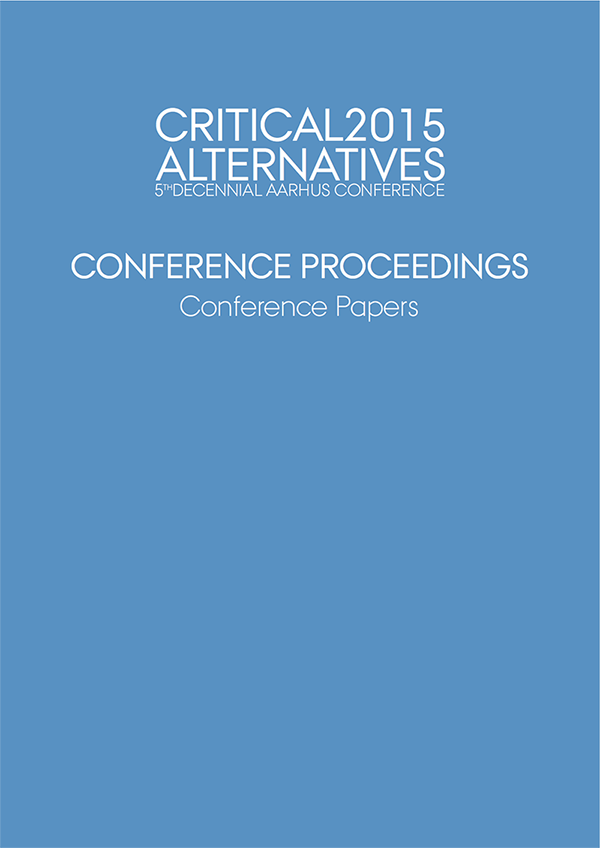Researching for Change in a Globalising Asymmetric World
DOI:
https://doi.org/10.7146/aahcc.v1i1.21392Keywords:
Design, Human Factors, ICT for Development, Emancipation, PowerAbstract
The field of research on Information and Communication Technology (ICT) in the service of social development (ICTD) is ripe for reframing. The asymmetries of the world are currently mirrored in the aims, practice and outcomes of too much ICTD research. The consequence is that people who might benefit from creative use of current and emerging technologies all over the world are excluded from the social processes and benefits of innovation and knowledge production. The ICTD research community’s widespread dissatisfaction with this situation haunts ICTD gatherings.
In this workshop we want to explore critical alternatives to the current practice. We intend drafting and articulating critical alternatives for future research that is emancipatory, inclusive and oriented towards globally sustainable futures.
To achieve this we first want to acknowledge and expose the vastly different knowledge interests and agendas of the various stakeholders. By examining a series of questions we shall then strive for a responsive reformulation of our approaches in a way that will not easily settle into a new orthodoxy. This will mean that we need to examine not only research and action agendas, transformation, inclusiveness, and power relations, but also our own personal growth and care for ourselves as actors in transformation.
It is fortuitous that the 5th decennial Aarhus conference comes on the target date for the achievement of the United Nations Millennium Development Goals. What next? We want to ensure that after 2015, the research approaches that are adopted and promoted in ICTD are actually structured in the service of development. An ICT that is for Development cannot be realised by blindly replicating global asymmetries where aims and approaches are defined by the powerful and imposed on those at the margins.
References
Irani, Lilly, Janet Vertesi, Paul Dourish, Kavita Philip, and Rebecca E. Grinter. “Postcolonial Computing: A Lens on Design and Development.” In Proceedings of the SIGCHI Conference on Human Factors in Computing Systems, 1311–20. ACM, 2010. http://dl.acm.org/citation.cfm?id=1753522.
Van der Velden, Maja. “Programming for cognitive justice: Towards an ethical framework for democratic code.” Interacting with Computers, 17(1), 105 – 120. 2005. Retrieved from http://linkinghub.elsevier.com/retrieve/pii/S095354380 4001171
Brown, V alerie A. “Multiple Knowledges, Multiple Languages: Are the Limits of My Language the Limits of My World?” Knowledge Management for Development Journal 6, no. 2 (December 17, 2010): 120–31. doi:10.1080/19474199.2010.532148.
Gitau, Shikoh, Paul Plantinga, and Kathleen Diga. "ICTD research by Africans: Origins, interests, and impact." Proceedings of the 4th International Conference on Information and Communication Technologies and Development ICTD. 2010.
Dodson, L., Sterling, S. R., & Bennett, J. K. Considering Failure: Eight Years of ITID Research. Information Technologies & International Development. 9[ 2], 19-34, 2013. Retrieved from http://itidjournal.org/index.php/itid/article/view/1050




